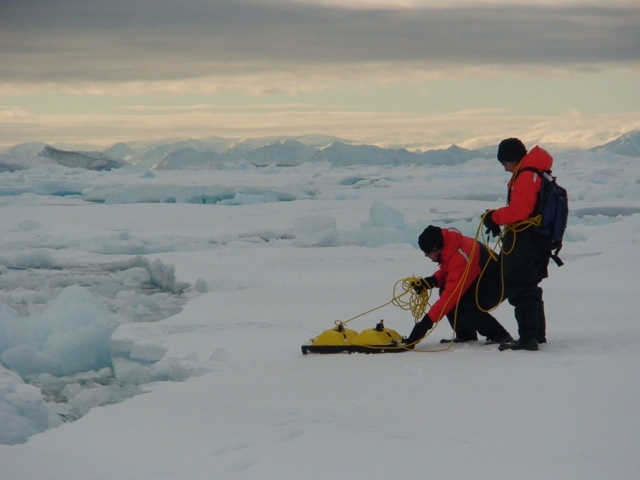ASP RESEARCH

credit: David Barber - IPY-CFL
ASP RESEARCH
The Arctic Science Partnership is a leading consortium on climate, ice, ecosystems and human interactions. Across water, land and atmosphere, ASP investigates:
- Ongoing changes in ice-ocean interactions, snow and ice extent, permafrost thaw and their combined consequences for Arctic ecosystems and the benefits we receive from the systems
- Feedbacks between the Arctic and Earth climate systems
- Proxies for predicting future changes in ocean currents, weather systems and ecosystems
- Impact of climate change on the Arctic population’s lifestyle and disease patterns
- Pollutant transport to the Arctic and exposure consequences on ecosystems and humans
Eight Guiding Questions for ASP Research
- How does climate change impact the Arctic cryosphere and what are the implications for the cryosphere’s interactions with land, ocean and atmosphere?
- What controls the marine and atmospheric transport of contaminantsto the Arctic?
- How can proxies of palaeoclimate/ecology inform us of changes in ocean current, wind systems, precipitation, future Arctic climates and their ecological consequences?
- What are the consequences of these drivers (1-2) for i) ecosystem productionand function? and ii) chemical contaminants affecting ecosystems and human exposure?
- What are the impacts of the transition and environmental changes on the Arctic population’s lifestyle and changes in disease patterns?
- What will be the combined effects of natural and anthropogenic forcing on ecosystems and their services?
- How can technology developments and implementation help us to connect scientific data needs with operational capability in the Arctic?
- What are the feedbacks between the Arctic and Earth climate system?
Click here to learn more about ASP research themes and projects.
ASP Leadership / Research Team
- Søren Rysgaard, Center for Ice-free Arctic Research (CIFAR), (Aarhus, Denmark)
- Christine Schøtt Hvidberg, Niels Bohr Institute, University of Copenhagen (Denmark)
Dorthe Dahl Jensen, Niels Bohr Institute, University of Copenhagen (Denmark)
- Josephine Nymand, Greenland Institute of Natural Resources (Nuuk, Greenland)
- Karley Campbell, University of Tromsoe (Norway)
- Malene Simon, Greenland Institute of Natural Resources (Nuuk, Greenland)
- Marcel Babin, Université Laval, (Canada)
- Tim Papakyriakou, Centre for Earth Observation Science (Winnipeg, Canada)
Torsten Kanzow, Alfred-Wegener-Institut (Bremerhaven, Germany)
- Uwe John, Alfred-Wegener-Institut (Bremerhaven, Germany)





